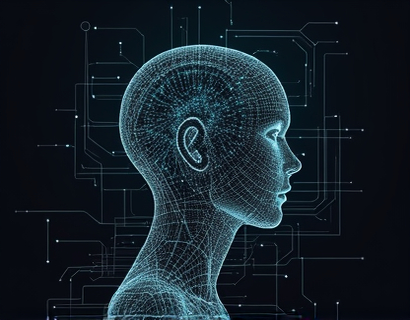Unlocking the Universe: In-Depth Insights for Curious Minds on Cosmic Knowledge
In a world overflowing with information, the quest for knowledge can often feel overwhelming. However, for those with a curious mind, the journey of discovery is both exhilarating and rewarding. This article aims to provide an in-depth exploration of cosmic knowledge, offering insights that ignite curiosity and expand understanding across a multitude of topics. Whether you are a seasoned learner or just beginning your journey, this resource is designed to empower and inspire you to delve deeper into the vast universe of information.
The Nature of Curiosity
Curiosity is a fundamental human trait that drives us to seek answers and explore the unknown. It is the spark that ignites our desire to learn and understand the world around us. From the earliest days of humanity, curiosity has led to groundbreaking discoveries and innovations. It is this innate desire to know more that fuels scientific inquiry, artistic expression, and philosophical contemplation.
Curiosity can be categorized into two types: intrinsic and extrinsic. Intrinsic curiosity is driven by a genuine interest in a subject, while extrinsic curiosity is motivated by external rewards or recognition. Both types play a crucial role in the learning process, encouraging individuals to ask questions, seek answers, and engage with new ideas.
The Importance of Knowledge
Knowledge is power. It equips individuals with the tools necessary to navigate the complexities of life, make informed decisions, and contribute meaningfully to society. In an age where information is readily available, the ability to discern credible sources and synthesize knowledge is more important than ever. Knowledge fosters critical thinking, enhances problem-solving skills, and encourages open-mindedness.
Moreover, knowledge is not static; it is constantly evolving. As new discoveries are made and old theories are challenged, our understanding of the universe expands. This dynamic nature of knowledge invites us to remain engaged and adaptable, continuously seeking to learn and grow.
Exploring the Universe of Information
The universe of information is vast and diverse, encompassing a wide range of topics from science and technology to art and culture. Each field offers unique insights and perspectives, contributing to a richer understanding of the world. Here, we will explore several key areas of knowledge that are particularly relevant to curious minds.
1. The Cosmos and Beyond
The study of the cosmos is one of the most fascinating areas of inquiry. Astronomy and astrophysics seek to unravel the mysteries of the universe, from the formation of stars and galaxies to the nature of black holes and dark matter. Understanding the cosmos not only satisfies our curiosity about the universe but also provides insights into our own existence.
Recent advancements in technology have allowed scientists to explore the universe in unprecedented ways. Telescopes like the Hubble Space Telescope and the upcoming James Webb Space Telescope have captured stunning images of distant galaxies, revealing the beauty and complexity of the cosmos. These discoveries challenge our understanding of space and time, prompting us to reconsider our place in the universe.
2. The Human Experience
Human beings are inherently social creatures, and the study of psychology and sociology offers valuable insights into our behavior, emotions, and relationships. Understanding the human experience is essential for fostering empathy and compassion, as well as for addressing societal challenges.
Psychology explores the intricacies of the mind, examining how thoughts, feelings, and behaviors are interconnected. It delves into topics such as mental health, motivation, and cognitive processes, providing tools for personal growth and self-awareness. Sociology, on the other hand, focuses on the structures and dynamics of society, analyzing how culture, institutions, and social interactions shape our lives.
3. The Wonders of Nature
The natural world is a source of endless fascination. Biology, ecology, and environmental science explore the intricate relationships between living organisms and their environments. Understanding these connections is crucial for addressing pressing issues such as climate change, biodiversity loss, and conservation efforts.
Biology examines the fundamental principles of life, from the cellular level to entire ecosystems. It provides insights into the mechanisms of evolution, genetics, and the diversity of life on Earth. Ecology, on the other hand, focuses on the interactions between organisms and their environments, highlighting the importance of maintaining ecological balance.
4. The Power of Technology
Technology has transformed the way we live, work, and communicate. The rapid advancement of digital technology has created new opportunities for learning and collaboration. From online courses to virtual communities, technology has made knowledge more accessible than ever before.
Understanding technology is essential for navigating the modern world. Topics such as artificial intelligence, data science, and cybersecurity are increasingly relevant in today’s society. By exploring these fields, curious minds can gain insights into the future of work, innovation, and the ethical implications of technological advancements.
Fostering a Community of Learners
One of the most rewarding aspects of the journey of discovery is the opportunity to connect with like-minded individuals. Engaging with a community of learners fosters collaboration, encourages the exchange of ideas, and provides support in the pursuit of knowledge. Whether through online forums, local study groups, or educational events, building connections with others can enhance the learning experience.
Participating in discussions, sharing insights, and collaborating on projects can lead to new perspectives and deeper understanding. A community of curious minds creates an environment where questions are welcomed, and exploration is encouraged. This sense of belonging can motivate individuals to pursue their interests and continue their journey of discovery.
Strategies for Effective Learning
As you embark on your journey of exploration, consider implementing the following strategies to enhance your learning experience:
- Set Clear Goals: Define what you want to learn and establish specific, achievable goals. This will help you stay focused and motivated.
- Embrace Curiosity: Allow your curiosity to guide your learning. Follow your interests and explore topics that intrigue you.
- Utilize Diverse Resources: Explore a variety of resources, including books, articles, podcasts, and videos. Different formats can provide unique insights and perspectives.
- Engage in Active Learning: Take notes, ask questions, and participate in discussions. Engaging actively with the material enhances retention and understanding.
- Reflect on Your Learning: Take time to reflect on what you have learned. Consider how it connects to your existing knowledge and how you can apply it in real life.
- Stay Open-Minded: Be willing to challenge your assumptions and consider alternative viewpoints. Open-mindedness fosters growth and deeper understanding.
The Future of Knowledge Exploration
The future of knowledge exploration is bright, with advancements in technology and communication opening new avenues for learning. As we continue to navigate an ever-changing landscape of information, the importance of critical thinking and discernment will only grow. The ability to evaluate sources, synthesize information, and engage in meaningful discussions will be essential skills for the next generation of learners.
Moreover, the integration of artificial intelligence and machine learning into education has the potential to personalize learning experiences, making knowledge more accessible and tailored to individual needs. As technology continues to evolve, it will be crucial to remain adaptable and embrace new tools that enhance the learning process.
Conclusion
Unlocking the universe of knowledge is a lifelong journey that requires curiosity, dedication, and a willingness to explore. By engaging with diverse topics, connecting with others, and employing effective learning strategies, curious minds can expand their horizons and deepen their understanding of the world. As we embark on this enlightening journey together, let us celebrate the power of knowledge and the joy of discovery. The universe of information awaits, and it is up to us to unlock its secrets and share them with others.










































